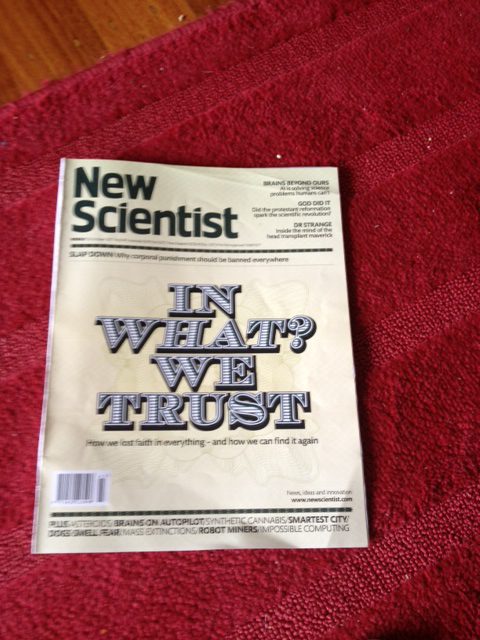 Writing in the October 2017 edition of New Scientist, Philip Ball argues that “today’s religious fundamentalism that denies evolution and Earth’s age is a peculiarly modern delusion”. Ball is a science writer and author of Curiosity: How science became interested in everything.
Writing in the October 2017 edition of New Scientist, Philip Ball argues that “today’s religious fundamentalism that denies evolution and Earth’s age is a peculiarly modern delusion”. Ball is a science writer and author of Curiosity: How science became interested in everything.
Ball asks “Did the religious revolution 500 years ago clear the way for the scientific revolution?”
In part it did.
Four years after nailing his 95 Theses to the door of the Wittenberg castle church, Luther defended his strong movement of conscience to the 1521 Diet of Worms. Much bolder than Galileo’s weak defence of astronomy, Luther’s challenge to the authority of the Church in Rome contributed to the liberating of an enlightenment in scientific thinking that would not be held back any more.
Ball’s argument is supported by John Henry historian of science at the University of Edinburgh, UK. The Protestant Reformation opened the door to thinking outside the Bible. Robert Merton, in 1938, fuelled the idea of the Reformation opening up scientific thinking. he pointed out how Puritanism, an English strand of the protestant movement, fostered the work of Newton, Boyle, Hooke and others.
Pure reason, mathematics and measurement became the tools for understanding the world.
The notion that Catholic dogma was putting a brake on science is a myth based on the misconception that science and religious belief are enemies. Ball highlights the many scientific challenges promoted from inside the Church from the 1400s. Early Protestantism was not exactly ‘progressive’ on science either with Luther calling Copernicus a fool.
The forces for change are more complicated than sometimes reported – with numerous reformations with different origins occurring across Europe in the 16th Century. But one thing aided all of these reformations – the growth of the printing press. At the same time as reformers such as Calvin and Luther were evolving, so too were their reactionaries and it is too big a claim to say science progressed only because of the reformation.
When Galileo asserted that the Bible was not a book of natural philosophy, this viewpoint was not criticised as it would be today by a large section of the Church. 16th Century theology and Church teaching did not dwell on belief in the creation myth so much as how humankind should give God appropriate precedence in all things on Earth. That form of fundamental interpretation was left to a later age.
oOo
